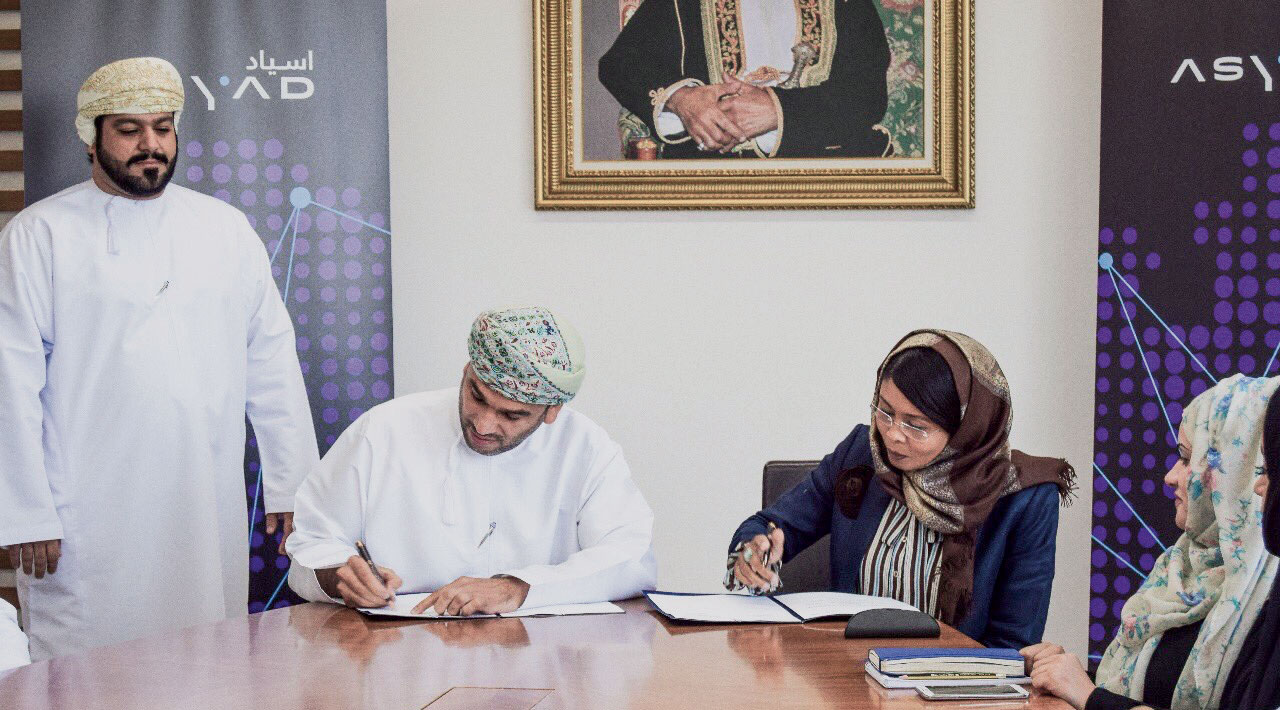

MUSCAT, SEPT 17 - The National Training Fund (NTF), which is the Sultanate’s workforce development flagship, has agreed to collaborate with the Oman Global Logistics Group (ASYAD) — the state-owned entity spearheading Oman’s transformation into a global logistics hub — to support the training of Omani cadres necessary to achieve the nation’s long-term logistics ambitions.
A cooperation agreement to this effect was signed here yesterday by Eng Abdulrahman al Hatmi, CEO of ASYAD Group, and Sharifa bint Tahir Aidid, CEO of the National Training Fund.
The agreement aims at sustaining human capital development through the establishment of a joint working group to formulate professional standards and curricula, said ASYAD in a tweet.
The deal will help develop the skills and competencies of Omani cadres who would be required to fill the tens of thousands of jobs expected to become available when implementation of the ‘Sultanate of Oman Logistics Strategy 2040 (SOLS 2040)’ shifts into high gear in the coming years.
The National Training Fund (NTF) was established by Royal Decree last year with the mandate to develop the capabilities of the Omani workforce aimed at bridging the gap between labour market supply and demand.
The SOLS 2040 blueprint developed by experts of ASYAD’s Oman Logistics Centre (OLC) envisions immense potential for the creation of jobs for nationals when the underpinnings of a logistics-centric economic are substantially in place. Logistics related jobs are projected to rise from around 30,000 in 2014 to 80,000 by 2020. The size of the workforce in logistics industries and activities is anticipated to further burgeon to around 200,000 by 2030, soaring to 300,000 by 2040.
The NTF- ASYAD cooperation pact is aimed at, among other goals, bridging the considerable gap that currently exists between educational skills required by the logistics industry and that which are available in the market. The Oman Logistics Centre has stressed the need for bespoke vocational training programmes delivered to international standards.
“It is the government, with the support of industry, that must take the lead in establishing, maintaining and monitoring these standards, supported as required by required legislation,” said OLC in the SOLS 2040 blueprint. “While the actual training programmes and courses should be developed by the private sector, it may be necessary for the government to kickstart the process,” it noted.
Conrad Prabhu
Oman Observer is now on the WhatsApp channel. Click here



